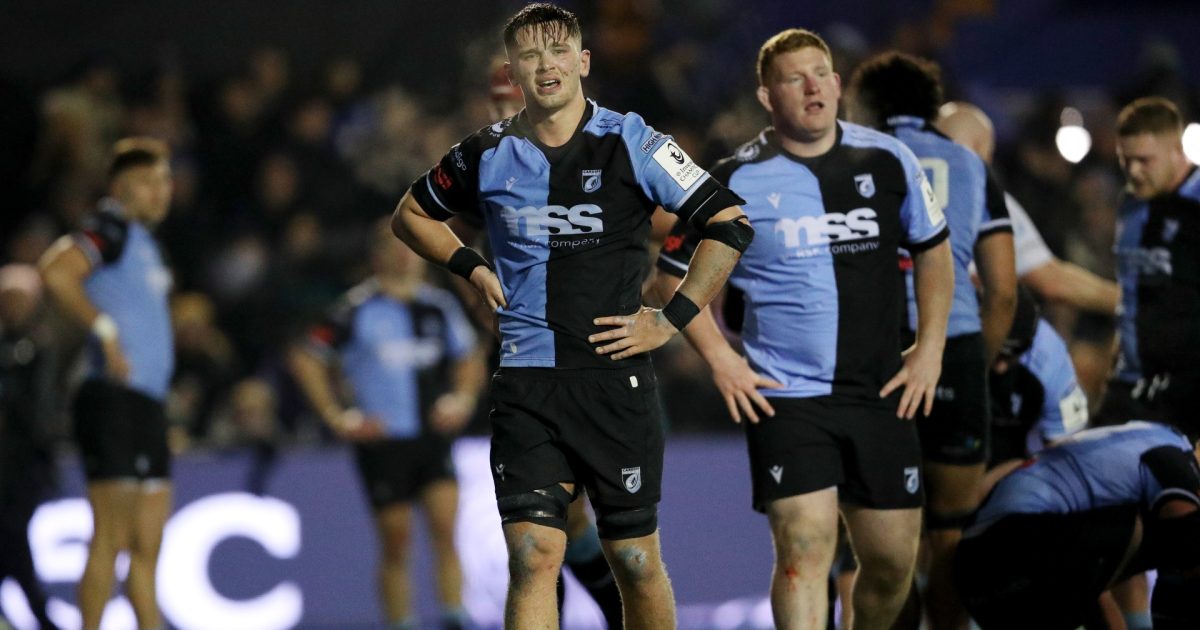Cardiff statement: Helford Capital takeover deal confirmed

URC strugglers Cardiff have confirmed that their takeover by Helford Capital will be completed on Wednesday after a club general meeting gave a 99.99 per cent approval for the deal to go ahead.
Club representatives met on Tuesday evening and it was ultimately decided that the best decision was for the Welsh region to accept the majority shareholding offer.
A statement read: “Cardiff Rugby are delighted to confirm Helford Capital Limited’s acquisition of a majority shareholding in the company will be completed on Wednesday. A general meeting took place on Tuesday evening and the relevant changes to the company’s share structure and constitution to allow the acquisition received a 99.99 per cent majority approval.
“Several other amendments to the articles were also approved by shareholders, including changing the company’s name to Cardiff Rugby Limited and the introduction of additional heritage rights.
“Helford Capital, which is an investment group spearheaded by British businessmen Phil Kempe and Neal Griffith, will now become majority shareholders of the company, with Gareth Edwards appointed the club’s new president.
“It is a historic moment for Cardiff Rugby, which completes months of negotiations and secures the club’s long-term future… The investment group had already secured approval from the Welsh Rugby Union (WRU) and from Cardiff Athletic Club, who will retain a minority shareholding in the club.
“Cardiff Rugby Limited now look forward to working closely with all stakeholders including the new leadership of the WRU to deliver a stable and successful future for the Blue and Blacks and whole professional game in Wales.
“The completion of this significant transaction brings an end to the formal relationship between Cardiff Rugby and the Thomas family, which spanned five decades. During that period Peter made an immeasurable contribution to his beloved club as a player, patron, benefactor, long-standing chairman and life president.
“His contribution has been recognised at the Arms Park with the renaming of the South Stand as the Peter Thomas stand, while a portrait in the trophy room was commissioned and unveiled last month.”
Cardiff Rugby chair Alun Jones said: “Today represents a huge moment in the history of Cardiff Rugby and gives us a bright, secure and exciting future. Following the sad passing of Peter Thomas, it was essential that we found new investment to safeguard the cub and drive us forward.
“We remain indebted to Peter, the Thomas family and the other shareholders who have moved on but we now have new owners who can help us fulfil Peter’s vision and ambitions for the club with renewed passion. Phil and Neal have a genuine appetite to restore Cardiff as a European force and have already begun stabilising the foundations.
“With Helford Capital at the helm, we want to deliver exceptional rugby experiences whether you are a player, a member of staff, a supporter or sponsor. Helford have the resource and ambition to deliver that and we will now begin an inclusive process with all key stakeholders to build a new long-term strategy.”
New WRU chief executive Abi Tierney said: “Congratulations to Cardiff Rugby and everyone involved in the negotiations and process to seek new investment, which today has reached a hugely successful conclusion. We welcome Helford Capital wholeheartedly to Welsh rugby with a sense of excitement and optimism about what the future holds.”
Malcolm Wall, chairman of the WRU professional rugby board, added: “Firstly it is important to recognise and thank the Thomas family for their long-standing support of Cardiff and Welsh professional rugby as the club enters a new era under new ownership.
“The investment has been subject to a thorough process, and having met Neal and Phil, I am optimistic and excited about the future for Cardiff. Cardiff supporters should also be very excited about the future and I look forward to working with their new owners to help implement their vision.”






























































